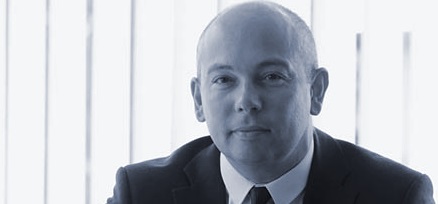 Has successfully moved sales to new model, is exiting unprofitable product lines, looks to acquire voice business
Has successfully moved sales to new model, is exiting unprofitable product lines, looks to acquire voice business Privately-held IT giant SCC continues to move to managed services with its latest figures showing it walking away from hardware-supply deals and growing its data centre business. Annual results for year ending March 2015, saw services revenue reaching £159m, up 22% and accounting for 24% of its total income.
Combined UK Operations had a FY15 revenue of £662m, down 13.3%; gross profit rose 15% as the margin rate increased 3.7% in the year to 15.5%.

James Rigby (above), chief executive SCC tells IT Europa: “The numbers reflect the journey over the last 3-4 years, which has been about improving the quality of our traditional reselling business. We will always be in that business, we have no plans to exit it. We have pulled back on the low value add business. We are moving to managed services and have spent probably £50m on data centres, largely in the UK on these assets and the cloud platforms, the managed services wrap and the offshore facility in Romania. A lot of money has gone in and we are starting to see it monetise.”
The investment has been in the physical data centres – about £30m – two big centres in Birmingham and one we bought in Portsmouth. “There are two cloud platforms – one for the private sector and one that is highly secure for the public sector, we have spent £10m on those. Our offshore centre in Romania helps customers with support and maintenance, software distribution. There are 750 people there now. On-shore we have invested in cloud skills and technical skills. The data centres are running at 67% capacity, there is further to grow, but they are now throwing off some serious cash and profit.”
“For a private company it was a big bet, but we could see that potentially the on-premise piece was going to decline and people will buy less stuff. Many customers will still buy products, but we saw this changing a few years ago and it is now very low margin.”
“The product business has bottomed out – it will stay the same or grow slowly; all the growth will come from the services side particularly the data centres, where if we can lift occupancy to 75% it is all profit.”
Managed services is now 24% of revenue and 55% of profit. “Our absolute preference is to cover all our overheads on services; then any product we sell is the icing on the cake. The beauty of these five-seven year managed services contracts is that we know we have that income at the start of each month. And customers in the mid-market with a data centre managed service, other projects and refreshes fall off the back of it – including products and projects.”
He wanted to provide as much of the end-to-end service for customers as we could, hence the investment in data centres. “Customers want this, it gives one “throat to choke”, rather than us just reselling other peoples services. We wanted to go deeper than that.”
Security is obviously a concern with the big government business. “The fact that we have our own security system, Sentinel, gives us an important differentiator against the likes of Google, Amazon and Microsoft,” he says.
And the issues around transitioning the sales force to the new model? “We are well down the road of sorting out salespeople with managed services, which rewards them on long term sales. In fact our challenge these days is keeping them interested in the low margin fulfilment stuff. They have had a few years of this and have built up a pipeline. It is really hard at the start, as these are six-nine month sales cycles. Some of these companies may need to bridge this, which is what we did to a certain extent.”
But he is on the lookout for acquisitions: “We still lack a voice business, we have the desktop and the data-centre, and the network, the last area we need to plug is voice, unified comma and VOIP. We see a lot of old companies with legacy technology, and a very high margin from support and maintenance, and people are getting rid of that stuff. It is a slower move away from this than we thought, but it is much much cheaper now using technology. We see the old suppliers hanging onto what they've got and very few people, very few capable companies able to take the customer on that journey to the new world. We see a big opportunity, and it fits well with what we have as IT and telecoms converge. There is a big opportunity, but it would take too long to build for ourselves. We will acquire in that area – not that many people to look at, though.”
He doesn't think SCC will go back into any new countries, however. “We see so much opportunity in the markets we are in. In the UK and France which is 90% of our business we see lots of opportunity and we don't want to spread ourselves too thinly. Actually, more and more of our customers are in the mid-market – for use 500-5000 users and we see those don't want to deal with the huge players like IBM; equally they don't want small MSPs who may not be financially stable. There are not that many players here.”
“Customers like the fact that we are privately owned – many of our customers have been with us for upwards of ten years. So that partnership is key, especially around the IT infrastructure. Also it seems that in the private sector they are moving to having one managed services supplier. It is getting much more complicated. We see our role as making it all work, and make it simple and make it perform and cost-effective.”